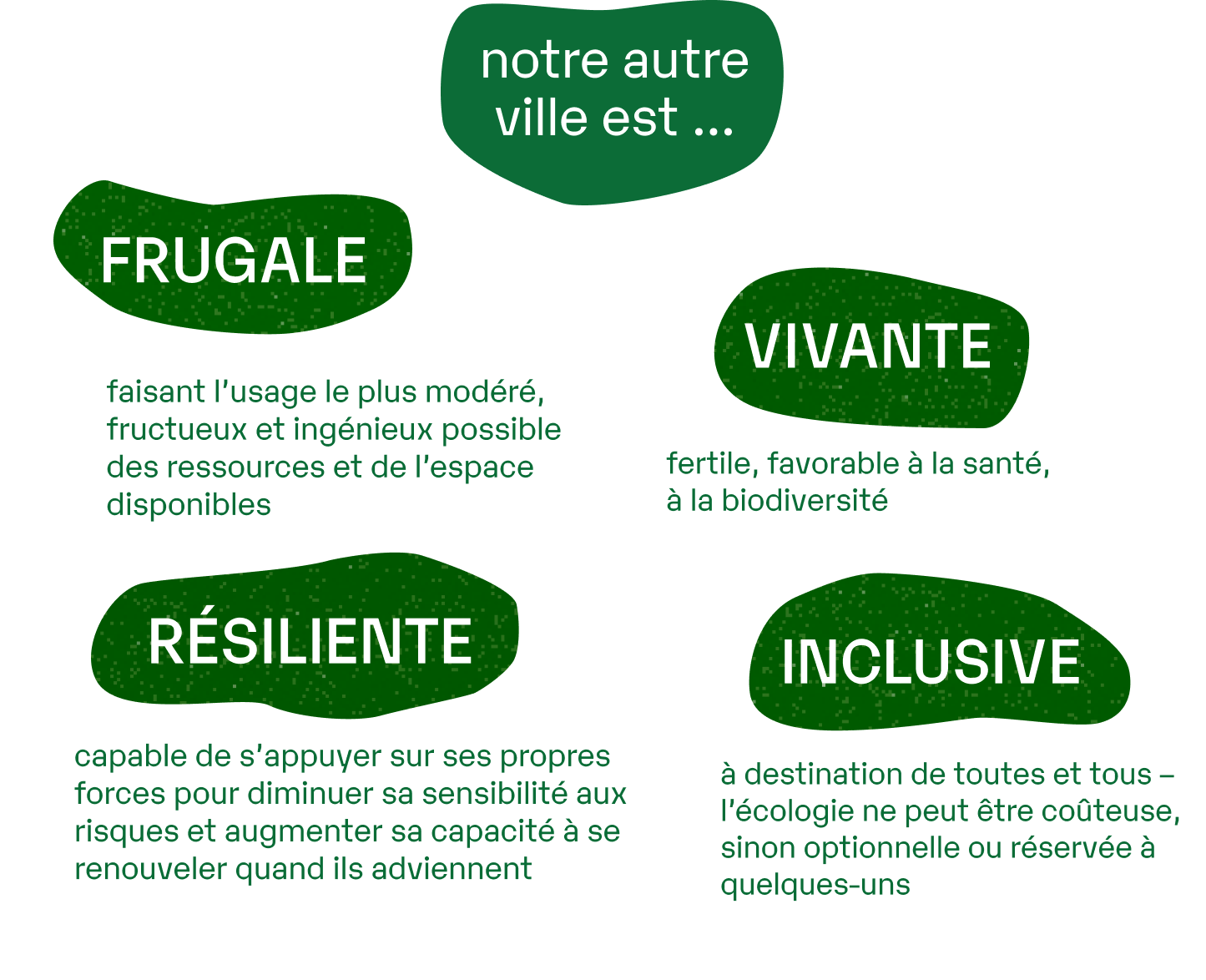Choosing Une Autre Ville means preferring the risk of side-paths rather than the ready-made recipes for meeting the challenges of urban transitions; it also means rigorously analyzing quantifiable data while accepting the uncertainty of a sensitive approach to the city.
The need for a city is an observation, but the ecological urgency invites us to change the way we produce and live urban spaces. Considering climate change, the collapse of biodiversity, the depletion of resources, environmental degradation, the increasing health vulnerability of cities, the inequalities that these rapid upheavals are exacerbating, continuing to produce cities and to develop them responsibly represent one of the major challenges of our century. Seeking to respond to this means engaging cities in new trajectories or "transitions".
These trajectories guide all the components of urban projects: their morphology, planning, flow and governance. They are also changing practices and lifestyles in future neighbourhoods and thus require us to anticipate their use and management.
Facing such complexity, project owners should not be the only side to take responsibility as it is important to explore alternatives in the way of involving all stakeholders in the process of making and renewing cities.

Shaped by the values of sobriety and solidarity that drive the team, methodological approach of Une Autre Ville is defined according to the following 6 methodological principles:

Do, on demand, as each project and each methodology must be adapted to both stakeholders and context

Cooperate, with all the city's stakeholders.

Interpret, by facing of the complexity of projects to make them accessible to all.

Zoom out, as the challenges of ecological transition call for us to investigate beyond projects' perimeters.

Anticipate usage, operational and management issues as early as possible.

Remain humble and agile in the face of changing project conditions, by seeking dialogue and experimentation.
Our brochure